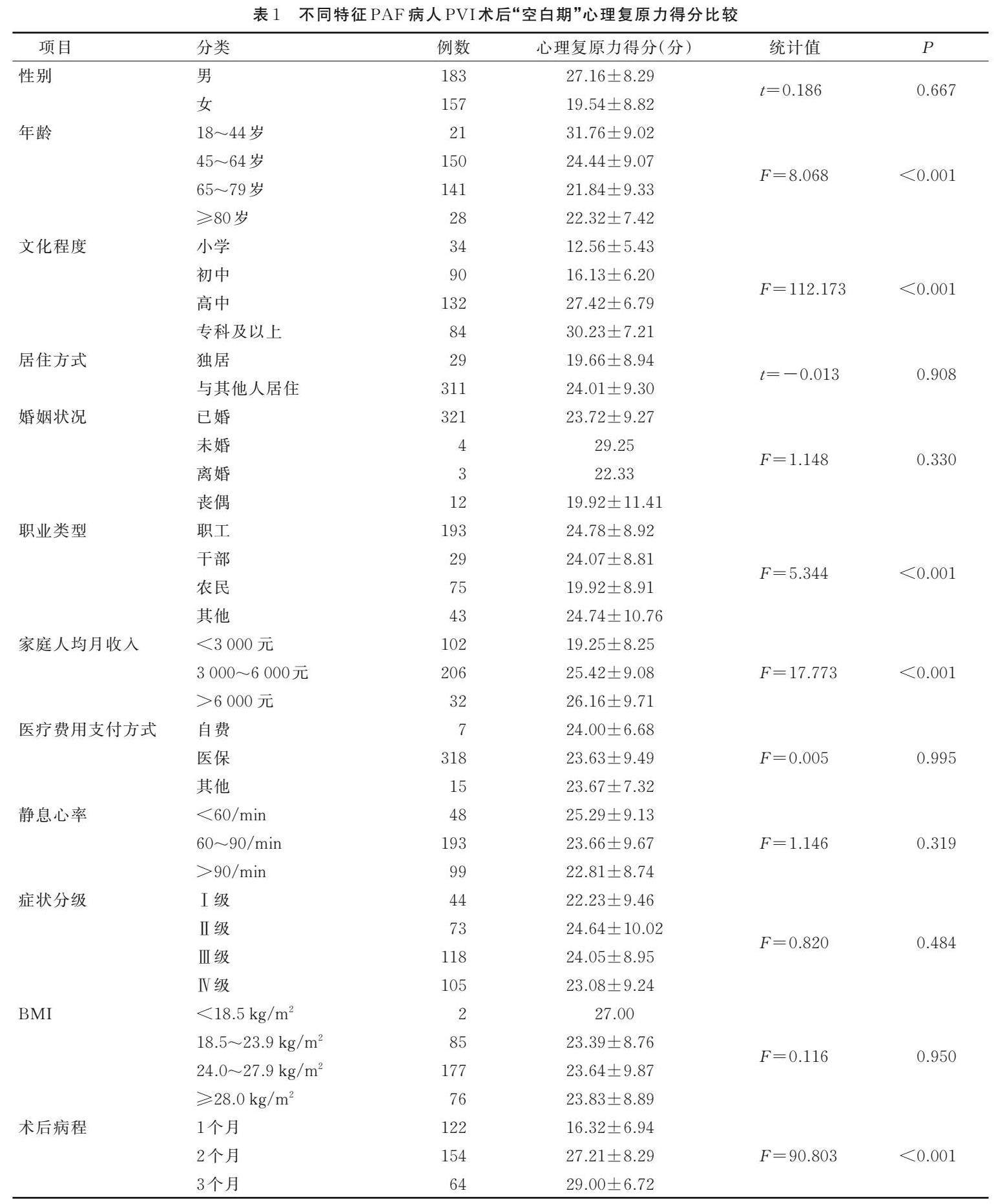阵发性心房颤动病人肺静脉隔离消融术后“空白期”心理复原力现状及影响因素


打开文本图片集
Abstract Objective:To investigate the status quo and influencing factors of resilience in the "blank period" of patients with paroxysmal atrial fibrillation(PAF) after pulmonary vein isolation(PVI).Methods:From July 2021 to April 2022,a total of 340 patients with PAF who were reexamined in the "blank period" after PVI in a general tertiary hospital in Qingdao were selected as the research subjects.General Information Questionnaire,10⁃item Connor⁃Davidson Resilience Scale(CD⁃RISC⁃10),Confidence in Atrial Fibrillation Management Scale(CALM),Perceived Social Support Scale(PSSS),and Hospital Anxiety and Depression Scale(HADS) were used for on⁃site investigation.Results:The total score of CD⁃RISC⁃10 was(23.64±9.34) points,the total score of CALM was(44.20±9.56) points,the total score of PSSS was(56.50±17.39) points,and the total scores of anxiety and depression were(17.80±4.68) points and(18.78±4.81) points,respectively.Resilience was positively correlated with self⁃management efficacy and social support (both P<0.01) and negatively correlated with the levels of anxiety and depression(both P<0.01).Multiple linear stepwise regression analysis showed that age,education,postoperative course,self⁃management efficacy,social support,and depression levels were the influencing factors of resilience.Conclusions:Patients with PAF had poor resilience during the "blank period" after PVI.During the "blank period" after surgery,psychological counseling and follow⁃up for patients and their families should be strengthened to help patients improve their self⁃management efficiency and social support and reduce their depression level,which could improve the resilience level of patients.
Keywords paroxysmal atrial fibrillation; pulmonary vein isolation; "blank period"; psychological resilience; influencing factors; nursing
摘要 目的:调查阵发性心房颤动病人肺静脉隔离消融术后“空白期”心理复原力现状及影响因素。(剩余14990字)